第65章 XI(3)
National Suffrage Convention, Buffalo, N. Y., 1908.
New York Headquarters established, 1909.
National Suffrage Convention, Seattle, Wash., 1909.
International Suffrage Alliance, London, England, 1909.
National Suffrage Convention, Washington, D.C., 1910.
International Council, Genoa, Italy, 1911.
National Suffrage Convention, Louisville, Ky., 1911.
International Suffrage Alliance, Stockholm, Sweden, 1911.
National Suffrage Convention, Philadelphia, Pa., 1912.
International Council, The Hague, Holland, 1913
National Suffrage Convention, Washington, D.C.; 1913.
International Suffrage Alliance, Budapest, Hungary, 1913.
National Suffrage Convention, Nashville, Tenn., 1914.
International Council, Rome, Italy, 1914.
The winning of the suffrage states, the work in the states not yet won, the conventions, gatherings, and international councils in which women of every nation have come together, have all combined to make this quarter of a century the most brilliant period for women in the history of the world. I h ave set forth the record baldly and without com- m ent, because the bare facts are far more eloquent than words. It must not be forgotten, too, that these great achievements of the progressive women of to-day have been accomplished against the opposi- t ion of a large number of their own sex--who, while they are out in the world's arena fighting against progress for their sisters, still shatter the ear-drum with their incongruous war-cry, ``Woman's place is in the home!''
Of our South Dakota campaign in 1890 there re- m ains only one incident which should have a place here: We were attending the Republican state nominating convention at Mitchell--Miss Anthony, Mrs. Catt, other leaders, and myself--having been told that it would be at once the largest and the most interesting gathering ever held in the state as it proved to be. All the leading politicians of the state were there, and in the wake of the white men had come tribes of Indians with their camp outfits, their wives and their children--the groups forming a picturesque circle of tents and tepees around the town. It was a great occasion for them, an Indian powwow, for by the law all Indians who had lands in severalty were to be permitted to vote the fol- l owing year. They were present, therefore, to study the ways of the white man, and an edifying exhibition of these was promptly offered them.
The crowd was so great that it was only through the courtesy of Major Pickler, a member of Con- g ress and a devoted believer in suffrage, that Miss Anthony, Mrs. Catt, and the rest of us were able to secure passes to the convention, and when we reached the hall we were escorted to the last row of seats on the crowded platform. As the space be- t ween us and the speakers was filled by rows upon rows of men, as well as by the band and their in- s truments, we could see very little that took place.
Some of our friends pointed out this condition to the local committee and asked that we be given seats on the floor, but received the reply that there was ``absolutely no room on the floor except for dele- g ates and distinguished visitors.'' Our persistent friends then suggested that at least a front seat should be given to Miss Anthony, who certainly came under the head of a ``distinguished visitor''; b ut this was not done--probably because a large number of the best seats were filled by Russian la- b orers wearing badges inscribed ``Against Woman Suffrage and Susan B. Anthony.'' We remained, perforce, in our rear seats, finding such interest as we could in the back view of hundreds of heads.
Just before the convention was called to order it was announced that a delegation of influential In- d ians was waiting outside, and a motion to invite the red men into the hall was made and carried with great enthusiasm. A committee of leading citizens was appointed to act as escort, and these gentlemen filed out, returning a few moments later with a party of Indian warriors in full war regalia, even to their gay blankets, their feathered head-dresses, and their paint. When they appeared the band struck up a stirring march of welcome, and the en- t ire audience cheered while the Indians, flanked by the admiring committee, stalked solemnly down the aisle and were given seats of honor directly in front of the platform.
All we could see of them were the brilliant feathers of their war-bonnets, but we got the full effect of their reception in the music and the cheers. I dared not look at Miss Anthony during this remarkable scene, and she, craning her venerable neck to get a glimpse of the incident from her obscure corner, made no comment to me; but I knew what she was thinking. The following year these Indians would have votes. Courtesy, therefore, must be shown them. But the women did not matter, the politi- c ians reasoned, for even if they were enfranchised they would never support the element represented at that convention. It was not surprising that, notwithstanding our hard work, we did not win the state, though all the conditions had seemed most favorable; for the state was new, the men and women were working side by side in the fields, and there was discontent in the ranks of the political parties.